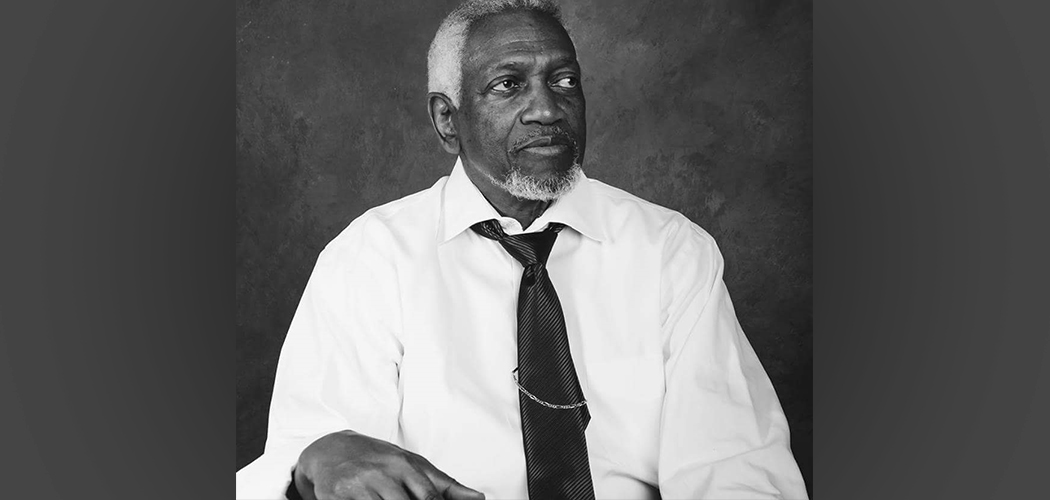[title subtitle=”words:Marla Cantrell
images: courtesy George B. McGill”][/title]
As mayor, he wants to be an ambassador for this city, to help promote art and music, and help for the less fortunate. He’ll do everything he can to encourage more businesses to come here, more families, and to thank the businesses and families that are already here. His work won’t stop at the city gates. He plans to be a champion for the entire region that we call the River Valley.
George B. McGill, former state legislator and newly elected mayor of Fort Smith, looks at his calendar that he keeps at his office in the historic district of the city. Today he has five speaking engagements, and it’s only Monday. He smiles when he breaks the news. Making speeches is part of the job, and he’s as natural behind a podium as most of us are talking to our best friends.
His ease in front of groups may have something to do with his upbringing in this city. Both his father, Louis, and his grandfather were ministers. He spent as much time in a well-worn pew at King Solomon Missionary Baptist Church as anywhere else. But his education in faith only started there. At home, his parents walked the walk. People in the community would come to them with their problems, and they would do everything they could to help.
Looking back, he sees their good work as an unorganized charity. In their neighborhood, no one did without. He remembers outgrowing a pair of jeans and watching his mother hand them over to another family with a boy who could use them. Someone would need groceries, and Mrs. McGill would contact her wide net of friends to make sure the family was fed. The older neighbors didn’t have to take out their trash bins or mow their lawns, because one of the six McGill children was there to do it for them.
Those older neighbors became like family. Walking home from school, George would stop by to see if he could help with a chore. More often than not, he was instead invited in for a piece of pie, and he’d sit at a kitchen table getting to know someone he wouldn’t have otherwise known.
This was the foundation that anchored George’s life. His mother, Elizabeth, branched out from her neighborhood work, seeing needs she believed she could help fill.
“My mom started the Elizabeth McGill Center back in the sixties, and she was way before her time,” George says. “She started a youth summer work program. She started a teen pregnancy program. She talked with the doctors, and they’d have conversations with parents and teens about teen pregnancy. It was a really progressive idea at the time. She went on to become a social worker. She was a court advocate for families and women and senior citizens.” After finishing high school, George attended the University of Arkansas, where he earned an M.B.A. in business, and served in the U.S. Army.
Eventually, he and his wife Millie opened McGill Insurance Agency. When the business opened, they formulated a plan. They’d work hard, save until it hurt, and sell the company in thirty years. After that, they’d enjoy a leisurely life together. “She’d had a career in customer service,” George says, “so she brought all of that skill to the table for us, and I got to work alongside my wife, my former girlfriend, my best friend.”
Thirty years came quicker than George could imagine, and just as they’d planned, they sold the business. But the good life they’d envisioned didn’t happen. Millie passed away six weeks into their retirement.
There is a hole in George’s heart from her passing. Left alone, he didn’t know what to do with himself, so he traveled some, and stayed busy.
Seven years ago, some of his friends talked him into running for the District 78 State Representative seat, and after much deliberation, George said yes. He ran unopposed and served three terms, which ended because of his election as mayor.
George may be remembered best for an impromptu speech he gave concerning Senate Bill 519 that sought in part to reserve the third Monday in January to honor Dr. Martin Luther King. Arkansas was one of three states that had honored King, and Robert E. Lee, commander of the Confederate States Army, whose birthday is also on January 19, on the same day. On the House floor, George talked about the respect he had for his fellow legislators who both agreed and disagreed with him. He told the story of his great-great-grandfather, another George McGill who’d fought in the Civil War, and after the war ended, and he was a free man, how he made his way to Fort Smith where he built a small house near the Arkansas River, so close to the coal trains that the walls of the house were covered in soot.
He said that while he could imagine his namesake’s life and struggles, it was not his story to tell. And then he shared parts of his own story, of going to the University of Arkansas at eighteen, and being denied a room in a dorm just because of the color of his skin. He said that he considered never stepping foot on campus again once he graduated, and then he said he couldn’t hold on to that hatred and pain forever. Without missing a beat, he said U of A is now one of his favorite places to be.
When the vote came, the bill passed easily.
He’s been asked why he has stayed in Fort Smith. The answer is simple. George believes this is where God wants him.
As he talks about this city, he returns to his young life in Fort Smith in the 1950s, and great times at the old Andrews Field (the land now part of the National Cemetery) where minor league baseball was played. On game nights he would often climb the light pole to see the action since there was a high fence around the park.
When President Johnson signed the Civil Rights Act, ending segregation and outlawing employment discrimination on the basis of race as well as gender, on July 2, 1964, George felt the world open up. The first thing he and his best friend did after the law passed, was to rush to Midland Bowl. It was a place they’d dreamed of going, and when they walked in and asked to rent shoes, they were greeted with nothing but kindness.
George leans forward in his chair, and his cufflinks, tiny replicas of the state flag of Arkansas catch the light. He pauses, and then praises the city on the way it and its citizens handled the end of segregation.
His admiration for Fort Smith has grown even deeper since then. He talks about the high rate of volunteerism in the area. All the people who give up nights and weekends to help at the Boys Club, or Girls Club, at Senior Citizens organizations, at schools.
As mayor, he wants to be an ambassador for this city, to help promote art and music, and help for the less fortunate. He’ll do everything he can to encourage more businesses to come here, more families, and to thank the businesses and families that are already here. His work won’t stop at the city gates. He plans to be a champion for the entire region that we call the River Valley.
When he won the election in November of last year, he said he knew every nook and cranny of his hometown. He grew up here, received awards for his work with charities, and was given the Fort Smith Spirit of Frontier Award.
When he is sworn in, his good friend, Federal Judge P.K. Holmes, will officiate. The ceremony will be held at the Judge Isaac C. Parker Federal Building because Judge Parker gave the first commencement address at Lincoln High School, the same segregated school George attended.
The symbology is important to George, who will be the first African American to serve as Fort Smith’s mayor. During the ceremony, George will likely think about his great-great-grandfather whose name he carries. There are things he will never know about the man: why George McGill came to Fort Smith, and what it was about this place that made him stay. But it’s safe to say that the first George McGill would be mighty proud of this one.




